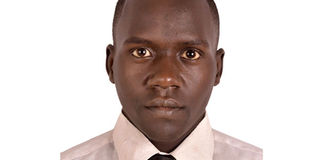Covid-19 raises necessity for clean energy

Patrick Edema
What you need to know:
- "Renewable energy is key to achieving Sustainable Development Goal 7”
The Covid-19 pandemic has highlighted the deep inequalities in Uganda in terms of access to clean, modern, affordable and sustainable energy. Electricity has been a vital underpinning of the response to public health emergency.
However, millions of citizens still lack access to electricity. Even before today’s unprecedented Covid-19 pandemic, Uganda has not been on track to meet key sustainable energy goals.
Today, it is likely to become even harder to achieve this goal. This means that as a country, we must redouble our efforts to introduce affordable, reliable and cleaner energy, especially in rural areas, in order to build more prosperous and resilient economy.
Access to reliable energy is the lifeline, especially in context of coronavirus crisis. It is essential not only for preventing and addressing the pandemic, but also for accelerating the recovery and building of a more sustainable and resilient future for all. Renewable energy is key to achieving Sustainable Development Goal (SDG) 7 and building resilient, equitable and sustainable economy in post Covid-19 world.
Now more than ever is the time for bold national cooperation to bridge the energy access gap and place sustainable energy at the heart of economic stimulus and recovery measures.
Despite an increase in the number of people with access to electricity of 21.6 per cent, to increase access to clean renewable energy under policies that are in place, still lack sufficient implementation and enforcement, which is an obstacle to achieving universal energy access for all by 2030.
According to the Energy Tracking Report by International Renewable Energy Agency (IRENA), significant progress had been made on various aspects of the SDG 7 prior to the outbreak of Covid-19 pandemic. This includes a notable reduction in the number of people worldwide lacking access to electricity, strong uptake of renewable energy for electricity generation, and improvements in energy efficiency. Despite these advances, global efforts remain insufficient to reach the key targets of SDG 7 by 2030.
Other important elements of the SDG also continue to be off-track. More than 90 per cent of people remain without clean energy for cooking in the country. Largely, stagnant progress has since led to millions of deaths each year from breathing of cooking smoke. The share of renewable energy in the country’s energy mix is only inching up gradually despite the rapid growth of solar power generation.
An acceleration of renewable energy across all sectors is required to move closer to reaching the SDG 7 target, with advances in heating and transport currently lagging far behind their potential.
However, accelerating the progress provision of clean energy in all regions will require stronger political commitment, long-term energy planning, and adequate policy and fiscal incentives. An increased emphasis on “leaving no one behind” is required, given the large proportion of the population rural communities.
Therefore, in this time of a global health crisis, protecting the health of 47 million people without clean energy for cooking, is more critical than ever. Government, donors, and the private sector should combine efforts to accelerate transition to clean and sustainable fuels and technologies to protect the health of the vulnerable.
And as to the current health crisis situation, the Covid-19 pandemic can either widen the sustainable energy access gaps or accelerate the path towards achieving SDG 7 in Uganda, which will, however, depend on priorities of national economic stimulus packages.
Mr Edema is an environmental engineer at African Institute for Energy Governance (AFIEGO). [email protected]




